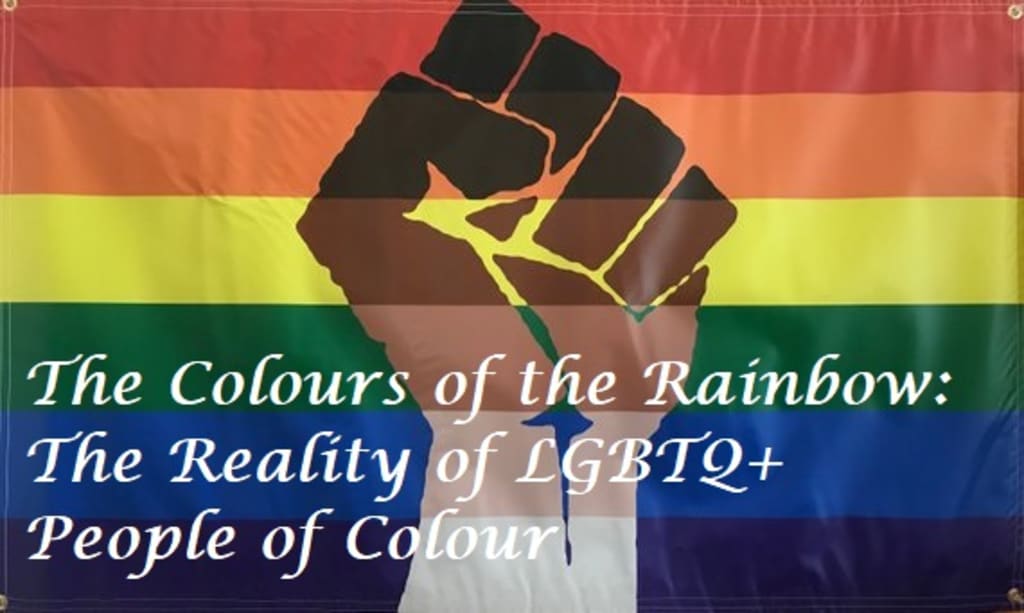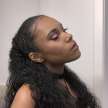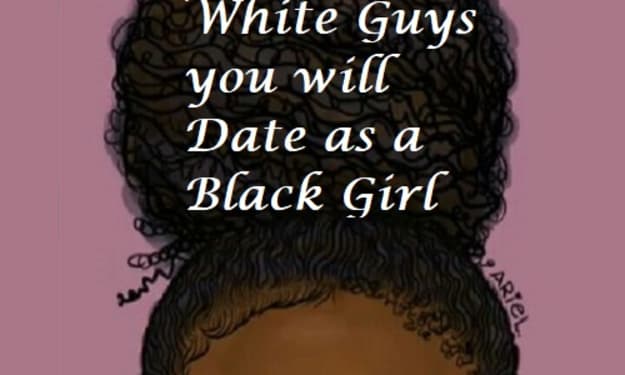The Colours of the Rainbow
The Reality of LGBTQ+ People of Colour

As the common world becomes more and more accepting of differences of all sorts, the LGBTQ+ community is more and more accepted as a part of modern society and media. We can now watch TV shows and movies with more diverse characters. The trope of the feminine gay best friend who is always there to help the main female protagonist with her fashion crises, boyfriend troubles and girl drama is an over used yet, I guess, effective way to prove that your project is diverse, brilliant and avant-garde! However, you will notice that this character, on top of being a pure stereotype of your average homosexual man, is almost always thin, attractive...and white. When we get to see representation of queer folks, which is not so often anyways, these characters always look the same way: White; therefore, leaving people of colour behind. The intersection of transgender, gay and bisexual identities cross other ones in real life. So how long will we have to wait to see an Asian trans guy on TV? I don't know. Until then, I would like to let the people experiencing these intersections talk about their reality, because we simply cannot wait for the mainstream media to do it.
As weird as it may seem for some people who are around queer people a lot or who are queer themselves, the existence of LGBTQ+ people of colour (POC) is a surprise to some, shocker, I know. I heard with my own two ears someone in my entourage say: ''I didn't know black people could be gay!'' First, of course they can and a lot of them are. Second, that is why they should be represented too. I understand that some white, straight and cisgender people think it must be ''so crazy'' to be both queer and part of a racial minority, but that's just the way it is! Coming out to people as a non-white person can be surprising to some, and that was the experience of some of the people that I talked to for this article. However, according to them, it was a mixture of a lot of things, not only them being people of colour. It was often also linked with their queerness alone. For example, Andre who is a 19-year-old bisexual Puerto Rican, feels like people were surprised when he came out, but it was also due to the fact that people still have judgements about bisexuality period: ''Some people were certainly surprised because people never take bisexuality as a possibility, it's always strictly gay or straight," he explained. The ''in between option'' not being taken seriously, mostly when it comes to masculine individuals, is another problem all to itself, but it is even harder when it comes to folks of colour. For 22-year-old Esteban, who was born in Quebec from Venezuelan parents, coming out to cis people as a transgender man also causes the ''surprise effect," which is one of the reasons why he doesn't particularly enjoy coming out.
Being the ‘‘Rainbow’’ Sheep of the Family
Foreign cultures are often accused of being too conservative, sometimes due to religion but sometimes just because of the mentality. It was the case for most of my subjects. For Ari, who is a 22-year-old Haitian and Dominican cisgender girl (meaning that she was assigned female at birth and identifies as female), her bisexuality is still a secret. Coming from a '' predominantly Black and Christian family [means] they are still deeply conservative [and] even the mere mention of someone being ‘‘different’’ [bothers] them, so I have chosen not to come out to them," she explains. Shania, a 15 years old pansexual girl is in a similar situation, saying that she didn’t come out to her relatives, mentioning the heavy weight of religion in her family: ''[R]eligion is a big part of the culture I was raised in, and it is often used to justify homophobia and ignorance, which is one reason why I decided to quit my religion."
Carla, however, did come out to her parents. Even if to her, Mexican culture is not the most accepting due to its patriarchal system, her parents did raise her to be open minded to the ones different from her, which is why when she came out, the response wasn't violent, or anything like that. But it doesn't mean it was easy: "It was passive," she says, ''but [it] still weights heavy on my mind. My parents rejecting my homosexuality damaged me deeply and because of that, today, I fear and stress the day I have to come out to anyone else,'' she confessed to me. Andre, also raised in a Latin household, agrees: ''Hispanic people have always sort of had this stereotype around them, being very religious to almost comedic levels, and I'm sad to say that there's a fair amount of truth in that, and that is ultimately what's keeping [them] from being accepting of the LGBTQIA+ community,'' he says.
On the other side of the globe, Sri Lanka has a similar problem says S.P. At 18, she says that her culture definitely has a long way to go when it comes to open mindedness towards the LGBTQ+ community. Her bisexuality was brushed off by her family when she came out, using the pretext that she possibly couldn't know since she had never been with a woman before, which is illogical because we don't hold straight people to that same standard. But the roots are deeper, she explains: ''There’s this sense of shame that my community has towards the LGBTQ+ [community]. Just the term LGBT is very taboo...It was hard at first to realize the fact that my parents may never accept me or this second community that I’m part of." To me that realization may be the hardest part of it. Understanding that your family may never love you enough to let their culture and/or religion behind, so they can keep loving you the way you are.
As a Black woman, it would be unreasonable to not acknowledge the blatant homophobia and transphobia in my own community, mostly amongst the men. Many Black men blame ''the gays and the feminists'' for everything going wrong in Black families, instead of actual issues among couples. The reason behind these beliefs is still something that I am trying to understand, but for Esteban, this mentality applies to not only Black men but to a lot of other people of colour too. They ''[use] homophobia or transphobia to fight against racism," which clearly is not a great way to do so. The oppression of minorities among communities of colour (therefore among double minorities) becomes a bigger problem when this hatred is used for a purpose or to create a bond between people, for example with homophobic and transphobic White people in order to obtain their approbation. For Carla, Latin culture is a good example of that problematic: "hating on women and on homosexuality is expected and encouraged," she says. These prejudices then have deeper roots into the culture which makes it harder to erase them throughout generations, no matter how hard some dedicated people can try.
Coming out to Yourself
The lack of representation is problematic for multiple reasons, the first one being that it makes it harder for queer people of colour to come out to themselves, which is by far the most important thing. In order to come out to other people, you need to know yourself and you need to love yourself. Is it harder for people of colour to realize and understand that they are LGBTQ+? It definitely was for the people that I asked, no matter what cultural background they have. In South American and Caribbean culture, ''queer issues is something that isn't usually spoken of and when it is, it's often vague and negative which makes self discovery, identification and acceptance a lot harder, because...you don't really have anyone to talk to," said Andre. Obviously, it depends on everyone, because everyone has a different experience when it comes to this journey. For Kajo who's a 21-year-old trans masculine folk, "Being a person of colour might have made [his] revelations take longer than white folks but at the beginning [he doesn’t] think it affected [him] all that much. [That is until he] started realising that it was going to be almost impossible to come out to [his] family."
The Cloud in Front of the Rainbow
It might seem like the LGBTQ+ community is oh so accepting of everyone, because they try to give off that vibe. However, no community is perfect, ever. The sad truth is that unless you are cisgender, White and homosexual, you won't be welcomed in all queer spaces. Being bisexual, pansexual, asexual or trans is still not accepted by everyone in the ''gay community'' (term that we shouldn't use, because not everyone in the LGBTQ+ community identifies as gay, just sayin').
But to stay on the topic, this issue is very real for them. For Esteban who identifies as gay though he is opened to trans feminine people, it really is a three-level issue that separates into a five way problem: "Sometimes I get excluded from cis spaces for being trans, sometimes I get excluded from gay communities for being trans. Sometimes I get excluded from trans straight people [because of their homophobia], sometimes I get hatred for being gay or trans by the Latino community and sometimes I'm excluded from LGBTQ+ communities for being Latino," he explains.
Being part of multiple communities might seem great on paper because it means you can identify with more people, however it also means that you get excluded by the first community because you're part of the second one, and so on, and so forth.
Being a Black woman with a good attitude under my belt, I often feel like gay White men see me as a character. Like I’m an archetype that they can look up to, regardless of the fact that I am very real. But that is not the biggest problem in my opinion. The issue with this is that it is really selective. While they love to see me as a cool sassy Black girl, a lot of them will publicly and without a shame say that they would never date a Black man, and sometimes go as far as rejecting people of colour from LGBTQ+ spaces. But is it really racism then? Dating preferences are a whole different topic that I won't even bother to bring up but thinking that you can't be racist because you're gay or because you know the words to every Beyoncé song, is a belief that is very present in the gay male community, and it needs to stop. The LGBTQ+ scene is predominantly White, like most things, and the problem with that is exactly what I just mentioned: People are not as open minded as they pretend and that's damageable. Kajo admitted that he doesn't want to take part in the LGBTQ+ Montreal scene anymore: ''They exclude us from queer events. I get angry even thinking about the subject...White people have power to really ruin us,'' he said. He also boycotted Pride last August, because to him, it's all lies.
A word could also be said about the attempts at making things better… attempts that ended up not being so great after all.
In 2017, a new version of the well-known rainbow flag was created, adding a brown and a black stripe to represent people of colour. Let’s keep in mind that this flag was never created with the intend to replace the flag we currently know and use permanently. It was created to highlight the presence of people of colour in the LGBTQ+ community because, in case you haven’t realised by now: They are often forgotten. Saying the backlash was intense would be an understatement. People were mad that the flag was being changed (which, it never was) but mostly that it was being ‘‘used’’ to represent a cause that not every queer person agrees with. To me, this is odd because why would you be against representation of racial minorities unless you have something against racial minorities…Anyway.
Another example is how the Toronto pride in 2016 was interrupted by the Black Lives Matter movement, with the goal of protesting the presence of the Toronto police force in the parade. I hope I am not shocking anyone by saying that communities of colours, mostly the black community, has been for centuries the target of the police when it comes to controlling, accosting and incarceration. It's also mentioned that police officers being present in large numbers could discourage queer black folks to participate or to assist to the parade, in fear of being persecuted. After discussion, the committee decided that the police would no longer be a part of the parade, in order to show respect for the daily struggles of Torontonians who must deal with the reality of their racialized identity. However, this decision didn’t last long because after a two year ban, the police could be allowed to register for the 2019 pride event that will occur on the 23rd of June. On October 16, 2018, the police had yet to register as a participant and I strongly think they still haven’t as of mid November of the same year.
The blatant erasure of people of colour in the queer battle is beyond illogical and unfair to me considering they were at the forefront of the fight from the very beginning. Pretending that black people, to only give that example, started being gay and/or trans last week is absolutely ridiculous considering black trans women were a crucial part of the movement for gay liberation!
Representation for queers of colours is beneficial for every queer person, no matter their race. Seeing non-white LGBTQ+ folks is queer representation, and that's what we're all looking for! I am writing this article to give a voice to the ones who are excluded, not to separate people into two different causes because that is, I think, the biggest misunderstanding: We are all fighting for the same thing. We want recognition, we want respect, we want to be heard and we want to be seen. A black lesbian or a Latino trans men in a tv show or movie is giving a point for LGBTQ+ representation and the world needs that, so much. After all, the beauty in the rainbow is its multiple colours, right?
Lonely Allie


''Being part of multiple communities might seem great on paper because it means you can identify with more people, however it also means that you get excluded by the first community because you're part of the second one, and so on, and so forth.''
About the Creator
Lonely Allie .
25 year-old disabled sociology and sexuality graduate trying to change the world. Nothing more, Nothing less.
Montreal based, LG[B]TQ+, Pro-Black Feminist.
You can find me at @lonelyallie on Instagram.






Comments
There are no comments for this story
Be the first to respond and start the conversation.